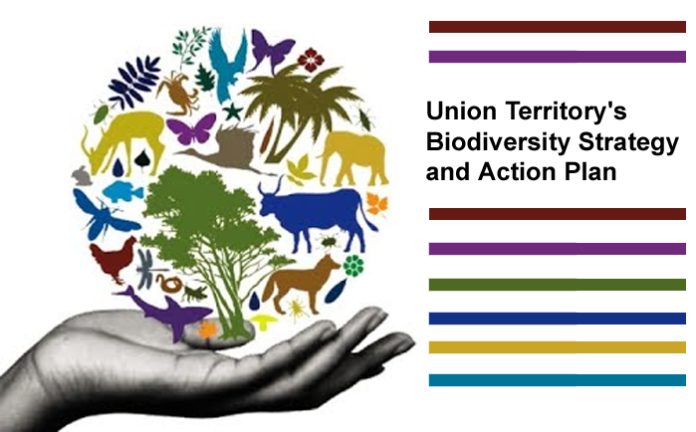In an era of accelerating environmental crisis, the urgency of implementing effective biodiversity conservation strategies has never been more apparent. Jammu and Kashmir, with its diverse ecosystems and rich natural heritage, is uniquely positioned to set a precedent in safeguarding biodiversity. However, despite initiating the process in 2020, the Union Territory’s Biodiversity Strategy and Action Plan (BSAP) remains a distant dream, stuck in bureaucratic limbo. The delay in finalising this critical document, which is supposed to chart the course for biodiversity conservation from 2022 to 2030, signals deeper systemic challenges that need to be addressed to ensure that the invaluable natural resources of J&K are preserved for future generations.
The BSAP is an essential tool for sustainable development, aiming to protect the region’s biodiversity while promoting equitable use of biological resources. If implemented effectively, the plan would have the potential to mitigate the adverse effects of climate change, protect endangered species, restore habitats, and promote the conservation of the region’s unique flora and fauna. Furthermore, by ensuring that the benefits derived from these resources are shared equitably, the BSAP could contribute significantly to the socio-economic development of local communities.
The process of drafting the BSAP began with high hopes and the involvement of “The Celestial Earth,” a group of internationally acclaimed professionals. The initiative was intended to involve consultations with various stakeholder departments to integrate the views and concerns of all relevant sectors, ensuring that the final document would be comprehensive and applicable to the region’s varied environmental and socio-economic contexts. However, despite these initial efforts, the process has been plagued by delays, inconsistencies, and a lack of clear direction. In the third meeting of the J&K Biodiversity Council held in April 2022, it was claimed that the BSAP would soon be submitted for final approval, yet more than two years later, it has still not reached the finishing line. At a later meeting in July 2023, it was revealed that the draft BSAP had already been submitted for approval, but the Administrative Department had advised further discussions with stakeholders before giving its nod. The resulting meetings have exposed a key issue: the financial breakdowns linked to the action points were seen as problematic, leading to a request for further clarification from “The Celestial Earth.” The exclusion of financial targets from the document, as decided in subsequent meetings, may have alleviated some immediate concerns. Still, it also underscores the broader issue of insufficient planning and coordination. The absence of a detailed funding framework leaves a significant gap in the document’s practical implementation, making it unclear how the ambitious goals set in the draft BSAP will be achieved without proper financial resources or a clear roadmap.
The lack of progress in finalising the BSAP is not only an administrative failure but also a missed opportunity. The region of Jammu and Kashmir is exceptionally vulnerable to the impacts of climate change, with erratic weather patterns, shrinking glaciers, and increasingly unpredictable rainfall patterns threatening its delicate ecosystems. The slow pace of adopting a comprehensive strategy for biodiversity conservation only exacerbates these vulnerabilities, leaving the region ill-prepared to face the growing challenges posed by climate change and environmental degradation.
Moreover, the involvement of multiple departments-each with its own priorities and concerns-has created a complex web of negotiations that has led to delays and a lack of coordination. The delay in finalising the BSAP calls for immediate action. The J&K Biodiversity Council, which is tasked with overseeing the process, must demonstrate stronger leadership and decisiveness. The plan must move beyond consultations and vague commitments to action. A timeline for the finalisation and implementation of the BSAP is crucial, and it should be prioritised in the coming months. The end goal has to be set immediately. Biodiversity conservation is not a luxury; it is a necessity, and the people of Jammu and Kashmir deserve a strategy that reflects this reality.
Trending Now
E-Paper


